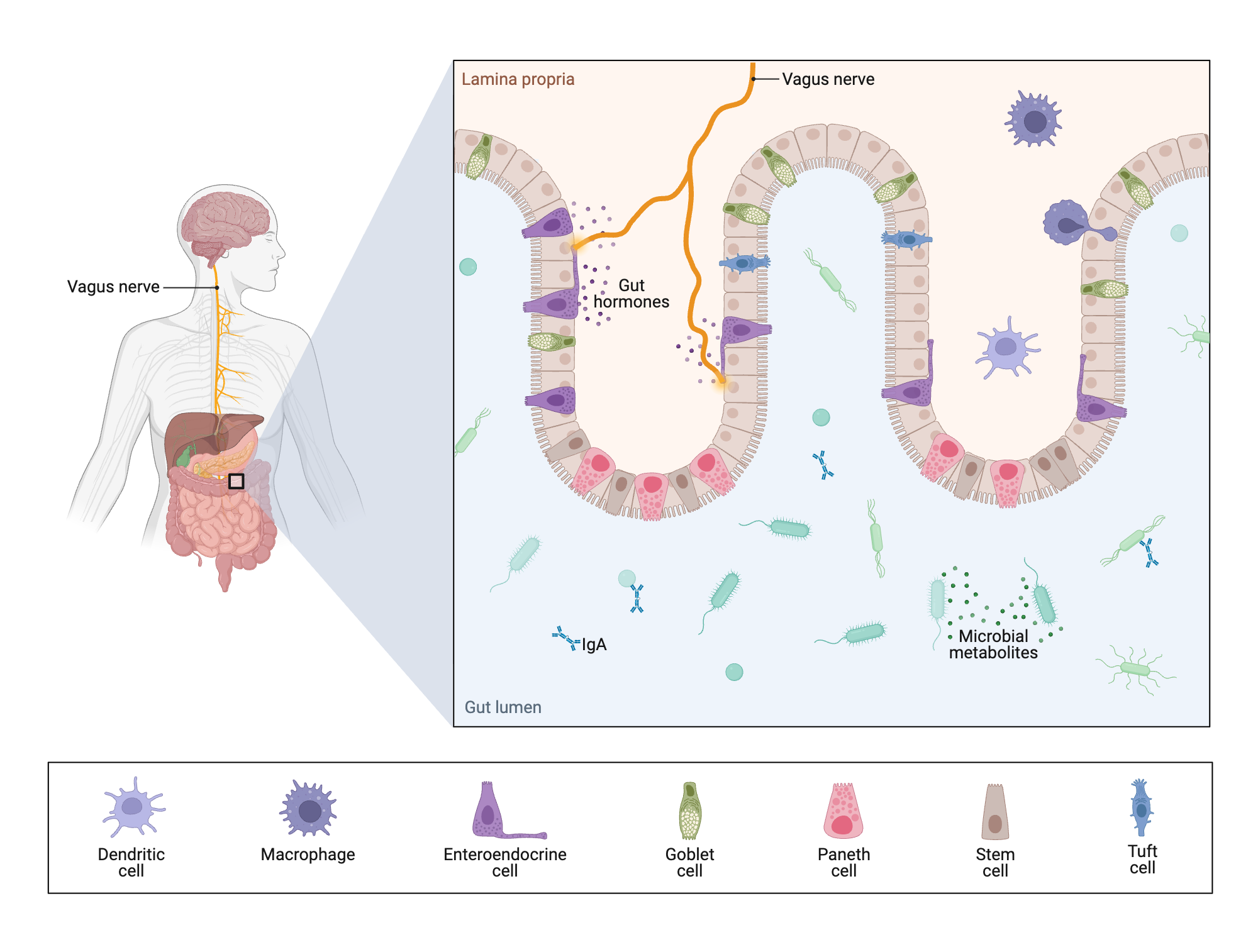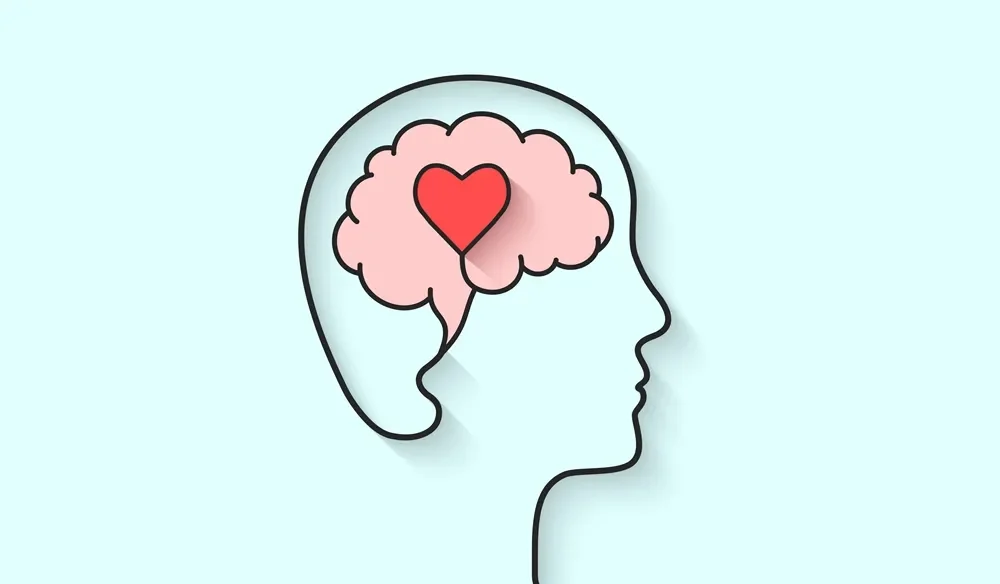Your Second Brain: Gut Health and Mental Health
Written by Nicole Zhu
Edited by Brianna Beckham
Ever been hangry? It might seem as if your stomach has a mind of its own. This idea is not far from the truth, as hidden within our bodies is what scientists call the “second brain,” in our gut. This complex network works quietly inside us, influencing mood, appetite, and motivation. It is known as the enteric nervous system, or ENS.
The ENS contains two thin layers of more than one hundred million nerve cells running from the esophagus all the way to the rectum. Although it does not think like the brain in our head, it communicates with it through the vagus nerve and chemical messengers, shaping how we feel both physically and emotionally. Trillions of microbes also live in the gut, forming a community that supports digestion, produces vitamins, and helps synthesize neurotransmitters such as serotonin and dopamine, key regulators of mood and happiness. These microbes not only keep the digestive system functioning properly but also send signals to the brain.
Graphic by Samara Ona using BioRender. Curated by Hailey Foster (hf348@cornell.edu).
This connection helps explain familiar sensations such as butterflies in your stomach when you are nervous or the discomfort of a gut-wrenching experience when you are stressed. Just as a troubled intestine can send distress signals to the brain, a stressed brain can just as easily affect the gut. This two-way communication means that emotional and mental states can influence digestion, and digestive health can also affect emotional well-being.
When psychological stress becomes chronic, it can contribute to conditions such as irritable bowel syndrome, bloating, and food sensitivities. Over time, these gut disturbances can intensify anxiety or depression, creating a difficult cycle. This is why researchers emphasize that maintaining a healthy gut may be an important part of protecting mental health.
Photos from 100% PURE (left) and International Food Information Council (right). Curated by Hailey Foster (hf348@cornell.edu).
Improving gut health is not a cure for mental illness, but it can strengthen the gut-brain connection. One of the best ways to do this is by following a gut-friendly diet that includes fiber-rich fruits, vegetables, and whole grains, as well as probiotic foods such as yogurt, kefir, kimchi, and sauerkraut. Omega-3 fatty acids found in fish, nuts, and seeds can reduce inflammation. Simple habits such as eating slowly, staying hydrated, sleeping well, and managing stress can also help maintain a balanced gut microbiome. Even small adjustments, such as drinking herbal tea instead of too much caffeine or taking time to relax before meals, can help the digestive and nervous systems work together in harmony.
Recently, researchers at Duke University School of Medicine discovered specialized gut cells that detect microbial proteins called flagellins and send signals directly to the brain through the vagus nerve. This finding suggests that gut microbes can influence behavior and appetite in real time through direct neural communication. Gut-brain interactions are therefore not limited to chemical messengers like hormones or metabolites but also include sensory and neural pathways.
Photo from BCG Washington. Curated by Hailey Foster (hf348@cornell.edu).
Thinking of the gut as a second brain reminds us to pay attention to what our bodies are telling us. The stomach and the mind are in constant communication, shaping our emotions, energy, and choices. By nurturing gut health through balanced eating, mindful living, and proper self-care, we are also caring for our mental well-being. So the next time you feel butterflies in your stomach or experience a gut-wrenching moment, it might be best to trust your gut.”
Nicole Zhu ‘28 is in the College of Agriculture and Life Sciences. She can be reached at nz274@cornell.edu.
Sources
[1] https://www.nuvancehealth.org/health-tips-and-news/the-gut-mental-health-connection
[2] https://www.health.harvard.edu/diseases-and-conditions/the-gut-brain-connection
[3] https://www.optum.com/en/health-articles.html/healthy-mind/surprising-link-between-your-micr obiome-and-mental-health
[4] https://www.hopkinsmedicine.org/health/wellness-and-prevention/the-brain-gut-connection
[5] https://medschool.duke.edu/stories/newly-discovered-sixth-sense-links-gut-microbes-brain-real-t ime?utm_source=chatgpt.com




